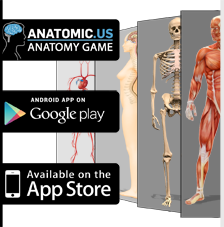Occipitalis Muscle
Venter occipitalis musculi occipitofrontalis is the Latin pronunciation for Occipitalis Muscle. It is also known as Occipital Belly of Epicranius Muscle and is one of the muscles that covers skull.
read moreOccipitalis Muscle
Occipitalis muscle is located at the rear of skull above the base of Scalp (area bordered by neck and face anteriorly). It forms two parts of Epicranius along with the Frontalis Muscle. It is thin and has a Quadrilateral shape . This muscle itself originates from the fibers of the Superior Nuchal Line (one of the four curved lines of Occipital Bone) of the Occipital Bone and Mastoid process of Temporal bone (bones at sides and base of Skull). It ends in the Aponeurotica’s Galea, a tough dense layer of fibrous tissues.
Occipital Artery supplies blood to the occipitalis muscle.
Occipitalis receives its innervations from the Posterior Auricular branch of the Facial Nerve (Cranial Nerve VII).
Occipitalis Muscle is a muscle for Facial movements. It extends the Scalp which lets the raising of eyebrows and wrinkling of Forehead. Using the entire muscle causes the skin of Cheek, temple and forehead to be drawn upward resulting in the closing of eyes. This movement if repeated can lead to Crow’s Feet.
If Occipitalis muscle doesn’t function properly the eye may not shut which leads to a variety of medical disorders, in extreme case the removal of the Affected Eye. Also tension or the raising of eyebrows for a long time causes pain in muscle that results in painful sensations in the head and teeth. Relieve from this pain can be gained by a gentle massage on the ridge in back of Head and above base of Skull.
ANATOMY
BLOOD SUPPLY
INNERVATION
FUNCTION
CLINICAL SIGNIFICANCE
Report Error


